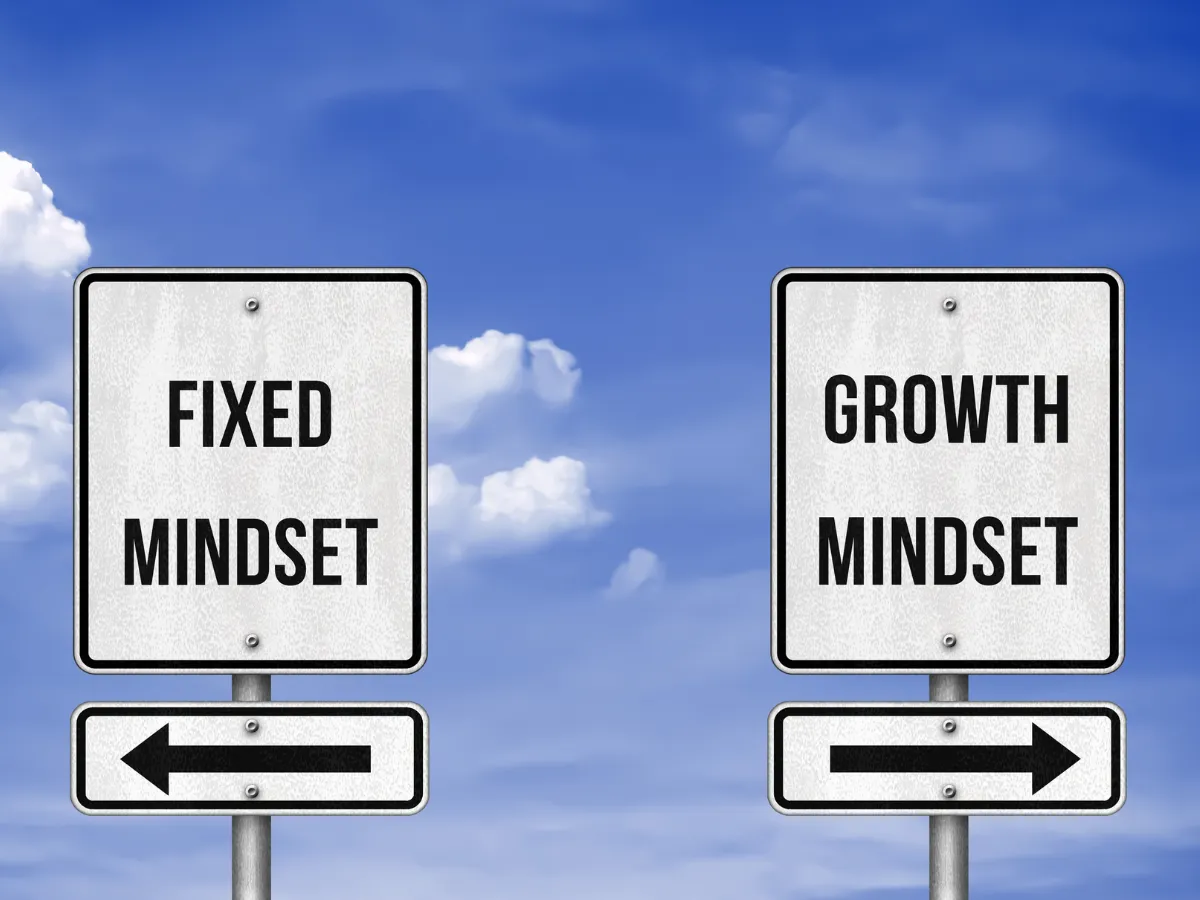
Fixed vs. Growth Mindset: Why Being Stuck in Your Ways is the Ultimate Buzzkill
Chandra Eden, The True Me Yogi
Mindset: The New Psychology of Success
Author: Carol S. Dweck, Ph.D.
"Well, maybe the people with the growth mindset don't think they're Einstein or Beethoven, but aren't they more likely to have inflated views of their abilities and try for things they're not capable of? In fact, studies show that people are terrible at estimating their abilities. Recently, we set out to see who is most likely to do this. Sure, we found that people greatly misestimated their performance and their ability. But it was those with the fixed mindset who accounted fo almost all the inaccuracy. The people with the growth mindset were amazingly accurate."
Fixed vs. Growth Mindset: Why Being Stuck in Your Ways Is the Ultimate Buzzkill
Ever notice how some people seem to bounce back from failure while others retreat like a dog caught chewing on the sofa? The difference often boils down to mindset. If you have a fixed mindset, you believe your abilities are set in stone—wired at birth with zero room for upgrades. But adopting a growth mindset? That’s like discovering life has a secret settings menu where you can keep leveling up.
Here’s why sticking to a fixed mindset is like shooting yourself in the foot, and how shifting your perspective can unlock a world of possibilities.
Fixed Mindset Woes
First, let’s break down the fixed mindset. It says, “This is who I am, take it or leave it.” Think thoughts like, “I’m bad at numbers, so why even try?” or “I’m not artistic, so I’ll pass on the paint night.” Sound familiar?
While this can feel safe—because hey, you’re not risking failure—it also builds a tidy little wall around your potential. A fixed mindset thrives on avoiding challenges and dismissing feedback, which might protect your pride but keeps your growth firmly stuck in neutral.
The Freedom of a Growth Mindset
Now, what’s the alternative? People with a growth mindset believe that effort, persistence, and a willingness to learn can expand their skills and abilities. Instead of saying, “I’m terrible at math,” a growth mindset rephrases it as, “I’m not good at this yet, but I can improve.” See the difference?
This mindset frees you to turn failures into lessons, challenges into springboards, and feedback into a roadmap for getting better. The best part? You don’t need to be born talented—just willing to show up and try.
Take swimming, for example. A fixed mindset says, “I’m not cut out for this,” after swallowing a gallon of pool water. A growth mindset? “Okay, so I flopped this time. What can I do better next time? Maybe work on staying calm instead of flailing like a fish out of water.”
The Role of Honest Feedback
One key to growth is being open to feedback—even the stuff that stings a little. Why? Because it shines a light on blind spots you might not even know exist.
Think about it this way. If someone gently points out that your presentation skills could use some polish, a fixed mindset might hear, “Wow, they think I’m terrible.” But someone with a growth mindset will say, “Alright, they’re onto something. Maybe I’ll do some practice runs or take a public speaking workshop to improve.”
This willingness to self-reflect and act on constructive criticism is a growth superpower. It takes courage, sure, but it’s also the quickest way to transform weaknesses into strengths.
How to Start Shifting Your Mindset
Feeling a bit fixed? Don’t worry. Shifting to a growth mindset isn’t about flipping a switch—it’s about taking small, intentional steps to reframe the way you think. Here’s how to start:
Question Your Narrative
If you hear yourself saying, “I can’t,” tack on the word “yet.” It’s a tiny tweak, but it flips the script from a dead end to a work in progress.
Fail with Flair
Getting things wrong is part of getting better. Instead of cringing after a misstep, ask yourself, “What can I learn from this moment?” Bonus points if you can laugh at yourself along the way.
Listen, Don’t Bristle
Accept feedback gracefully, even when it’s tough to hear. Treat it as valuable intel for your growth instead of a personal attack.
Celebrate the Effort, Not Just Results
Success isn’t the goal—it’s the byproduct of effort. Whether you nail it or blow it, acknowledge the fact that you stepped up and tried.
Unlock Your Potential
Here’s the deal. A fixed mindset might keep you comfortable, but it also keeps you stuck. A growth mindset, on the other hand, opens you to possibilities you didn’t even know were in the cards. It’s not about pretending every failure is fun—it’s about seeing failure as a stepping stone rather than a dead end.
When you’ve got a growth mindset on your side, there’s pretty much no limit to what you can learn, achieve, and become. The only catch? You have to be willing to start.
Why not make that today?
